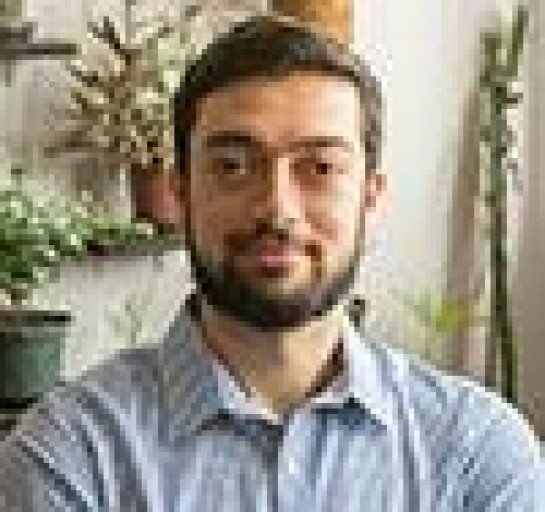Detailed Plan
<u>DETAILED PROBLEM STATEMENT</u>
- Although STEM education (Science, Technology, Engineering, and Mathematics) is presented as demand for Brazilian schools, teachers do not have free training courses to implement STEM projects with students.
- No free courses on STEM projects are offered to teachers.
- The Brazilian public school needs proposals, approaches, and methodologies that unite the students' reality with their holistic education.
- The pandemic has worsened the working conditions for teachers, who accumulate duties and bureaucratic tasks, and are extremely demotivated.
- Assessments such as PISA, show that in reading, mathematics, and science, young Brazilians have an average of 74 points lower compared to students from countries of the Organization for Economic Cooperation and Development (OECD) (BRASIL, 2019, p.63).
Why courses, why STEM education?
In the Brazilian High School reform, education roadmaps are presented with which schools should operate from 2021 on (BRASIL, 2021). Among them, STEM education is one of the demands placed on the curriculum. In addition, the National Fund for the Development of Education (FNDE) has required textbooks from STEM projects through the call for proposals of the National Book Program in 2021 (textbooks are centrally distributed by the Ministry of Education in Brazil).
STEM education is an educational movement present in several countries in the northern hemisphere (Martin Paez, 2019; Blackley, 2015) and that, in recent years, has become popular in Latin America as well. Although the STEM education movement encourages interdisciplinarity and integration across subject areas, is guided by hands-on activities that involve digital technologies, Brazilian teachers do not have access to training courses to develop STEM projects with students. In other words, even though the Brazilian curriculum brings innovative proposals such as STEM project-based learning, teachers have not been trained to carry out this transformation in the classroom (Silveira, 2017).
The demand for courses on how to implement STEM projects in the classroom is huge in Brazil, especially free courses that know how to dialogue with the needs of Brazilian schools. In addition, courses are needed that know how to dialogue with more human education, connected to new times, and that value Brazilian teachers, without conflicting with the high workload they have (Arroyo, 2014).
<u>DETAILED SOLUTION</u>
- STEM Territory: Online courses for continuing education in STEM education, with certification from the State Education Secretariat and the Federal University of Minas Gerais.
- We already have the necessary institutional agreements to certify them. Since the courses will have official certification, the teachers will be able to use them to receive salary increases and will be able to take them within their working hours. In other words, the courses do not increase the workload and value the continuing education of teachers.
- The courses will assist teachers with the challenges of recent curriculum reforms and help teachers develop innovative practices such as Project-Based Learning and STEM education.
- Our solution contributes to the economic development of Brazil and to the strengthening of institutional partnerships made from the Catalyst project.
Our target audience and the region we will focus on
Given the continental dimensions of Brazil, we will offer the courses to teachers from the State of Minas Gerais, the 2nd most populous state in the country. In addition, we have access to the State Education Secretariat and local Universities, because we are a team of coordinators and teachers from the State.
The State of Minas Gerais in numbers:
- 4.3 million students
- 197 thousand teachers
- 85% of the network is made up of public schools
(Data from school census, 2020. Available at: https://www.gov.br/inep/pt-br/areas-de-atuacao/pesquisas-estatisticas-e-indicadores/censo-escolar/resultados))
With so many students and teachers, the challenges are many. One example is the implementation of the new curriculum (New High School) in 2022. The new curriculum brings new perspectives to teaching, requiring each teacher of the four major areas of knowledge (Humanities, Natural Sciences, Languages, and Mathematics) to talk to each of them. In addition, it is necessary to develop joint projects, work on new learning methodologies, in the search for greater interdisciplinarity among the various curricular components. There is, therefore, a great need to update the pedagogical practices of the teachers in the Minas Gerais state network. Given the dimension of this network, projects that connect to these needs are necessary in the search for more human education, connected to the new times.
Thus, our courses will be geared to help teachers develop a teaching proposal that is aligned with the STEM Education movement. They will be designed to impact both the professional development of teachers and the challenges of the curriculum reforms being implemented. In addition, the courses will aim to:
- Encourage engagement, collectivity, and exchange/sharing of experiences among teachers.
- Provide teachers with elements for their professional development, taking into account their autonomy, recognition, and empowerment.
- Develop a culture of pedagogical innovation.
- Involve teachers in finding solutions to improve teaching and learning in order to guarantee quality teaching for all students.
Further benefits from our solutions
- The courses will be designed by STEM experts in partnership with local universities. Therefore, they will strengthen the links between research and practice.
- Strengthening of a network of actors able to promote STEM education in the schools of Minas Gerais.
- Once the online courses are created and funded, they can continue to be offered even after the initial funding of the Catalyst project.
<u>PRODUCTS :</u>
7 courses will be offered in the LMS platform of the Secretary of Education of Minas Gerais. There will be no extra costs for using the platform.
These are the courses:
- STEAM for sustainable development - revisiting the relationships between science, technology, and society
- STEM Projects and Climate Action. Fighting global warming with good ideas.
- Programming made easy: how teachers can learn, teach and use computational thinking in the classroom.
- Interdisciplinarity at school. How to integrate the different STEM areas and go beyond them.
- STEM and Design Thinking, lessons from design to improve projects.
- STEM and public health. Learning from the lessons of pandemics.
<u>ROADMAP:</u>
In months
- Articulate program implementation and project plan
- Establish contracts and partnerships
- Identify and hire authors of the online courses, in partnership with local universities.
- Structure the 7 courses together with the authors
- Review and pilot courses, with certification from the State Department of Education.
- Launch and enrollment of selected teachers
- Offering of courses
- Tutors accompany the course and encourage teachers to carry out the activities
- Partial evaluation of the quality of the courses
- Completion of courses and final evaluation
- Re-planning for the next offers
<u>SDG GOALS:</u>
Goal 4. Ensure inclusive and equitable quality education and promote lifelong learning opportunities for all
<u>UNIQUENESS</u>
- Each course is planned by different actors: elementary and high school teachers, university professors, researchers in the field of education, professors from federal technical schools, and managers from the state education system of Minas Gerais, which brings together the university, school, and public management.
- The professors on our teamwork directly in the classroom, so they know the reality of the teachers, students, and public schools up close.
- The project counts on the participation of two school management teams (the Municipal Education Secretary of Ribeirão das Neves and the State Education Secretary). It also counts with the participation of two federal educational institutions (the Federal University of Minas Gerais and Federal Technological Center of Minas Gerais).
<u>KEY ASPECTS</u>
- Encourage the continuing education of teachers based on research and on themes relevant to teaching practice.
- To provide the debate on different themes with the intention of instrumentalizing the teacher to carry out the discussion in his or her classroom.
- Participation of masters and doctors in the elaboration of the courses.
- The presence of tutors to guide and support teachers throughout the course.
TEAM
- Gustavo Oliveira Pugliese – Ph.D. in education, 7 years of experience in educational projects management, and 8 years of teaching experience. Author of online (LMS Platforms) and in-person courses, as well as didactic materials for students and teachers all over Brazil. https://www.linkedin.com/in/gustavopugliese/?locale=en_US
- Aliene Araújo Villaça PhD candidate at Faculdade de Educação da Universidade Federal de Minas Gerais (UFMG). Specialist in educational program management. https://www.linkedin.com/in/aliene-araujo-villaca-546a001a3/
- Enderson Neves Cruz - Professor at the Electronics and Biomedical Department of the Federal Center for Technological Education of Minas Gerais (CEFET-MG) and member of the management team of LAB Maker CEFET-MG.
- Mônica de Oliveira Ribeiro - Director at the High School Principal's Office and participant of STEAM Tech Camp Brasil.
- Selmara Ribeiro Silva - Teacher at the Secretary of Education for the State of Minas Gerais and participant in STEAM Tech Camp Brazil.
- Alexandre Marini - Teacher from the Secretary of Education for the State of Minas Gerais.
- Alexandre Duarte Washington - Professor of the Secretary of Education of the State of Minas Gerais.
- Tania Margarida Lima Costa - Professor at the Pedagogical Center of the School of Basic and Professional Education from the Federal University of Minas Gerais (UFMG) and General Director of the School of Basic and Professional Education from UFMG.
- Liza Iole da Silva Caetano - Manager of Integral Education of the Municipal Education Secretary of Ribeirão das Neves. https://www.linkedin.com/in/liza-iole-da-silva-caetano-006b7930/
<u>SUCCESS IN THE SHORT-TERM – 6 MONTHS</u>
- Creation of 7 online courses that can be offered to all teachers in Minas Gerais.
- 2100 teachers enrolled in the first offering of the courses - 300 seats per course.
- 20% of the registered teachers participate in more than one course.
<u>SUCCESS IN THE MID-TERM – 12 MONTHS</u>
- 80% course completion rate
- With this conclusion rate, we will impact 1680 teachers and 36,670 students.
- Teachers are able to implement STEM projects in the classroom with students.
- Visibility in the state education system;
- Expansion of the program to more teachers and therefore more students.
- Raising more resources for the expansion of the proposal.
<u>SUCCESS IN THE LONG-TERM – 24 MONTHS</u>
- Creation of new courses
- Expansion in the number of teachers served by the courses from the 2nd year of the project on.
- A network of actors articulated for the development of the program
<u>KPIS</u>
- Creation and implementation of 7 continuing education courses for teachers.
- Active participation of teachers in the LMS platform
- Number of teachers who complete the course
- Quantity and quality of STEM projects developed by teachers.
- Sustainability of the project to be offered at the end of the Catalyst funding cycle.
<u>BUDGET</u>
Courses:
Price of each course (Authors and course editors remuneration): $865.15
x 7 Courses in total. <u>Subtotal: $6,053.18</u>
Human resources:
Instructional Designer: $144.05 for each course in the LMS platform. <u>Subtotal: $1,008.34</u>
Course coordination and assessment: 60h/month during 10 months (from elaboration to conclusion) $180.01/month. <u>Subtotal: $2,702.26</u>
Program coordinator: 40h/month. $180.01/month during 11 months. <u>Subtotal: $1,981.66</u>
Communication kits:
<u>$467.07</u>
Total budget required: $16,000.00 USD ($6,054.60 + $3,784.12 + $2,702.95 + $1,982.16 + $467.07)
<u>REFERENCES</u>
BRASIL. Ministério da Educação. Guia de Implementação do Novo Ensino Médio. Brasília: Ministério da Educação e Conselho Nacional de Secretários de Educação, 2021.
Disponível em: http://novoensinomedio.mec.gov.br/#!/guia. Acesso em: 05 abr. 2021.
BRASIL. Ministério da Educação. Relatório Brasil no PISA 2018: versão preliminar. Brasília: Ministério da Educação, 2019.
SILVEIRA; Elizeth Rezende Martins da; PREVITALI, Fabiane Santana. Trabalho docente e políticas educacionais: um estudo sobre o controle do trabalho docente na rede estadual de ensino de minas gerais em uberlândia - a partir de 2003. INOVA: Ciência e Tecnologia. v. 3, n.2, jul./dez., 2017. Disponivel em: <http://periodicos.iftm.edu.br/index.php/inova/article/view/244> Acesso em: 01.dez.2021.
ARROYO, M. G. Currículo, território em disputa. Editora Vozes, 2014.
BLACKLEY, S.; HOWELL, J. A Stem Narrative: 15 Years in the Making. In: Australian Journal of Teacher Education, v. 40, n. 7, 2015. <https://doi.org/10.14221/ajte.2015v40n7.8>
MARTÍN-PÁEZ, T, AGUILERA, D, PERALES-PALACIOS, FJ, VÍLCHEZ-GONZÁLEZ, JM. What are we talking about when we talk about STEM education? A review of literature. Science Education, 103: 799– 822, 2019. <https://doi.org/10.1002/sce.21522>




